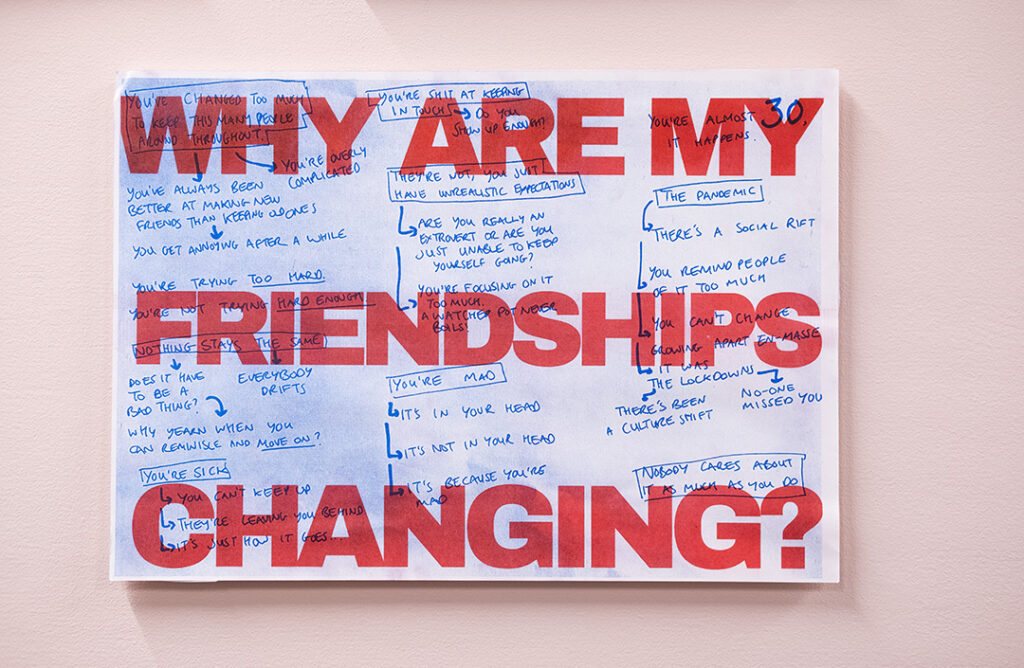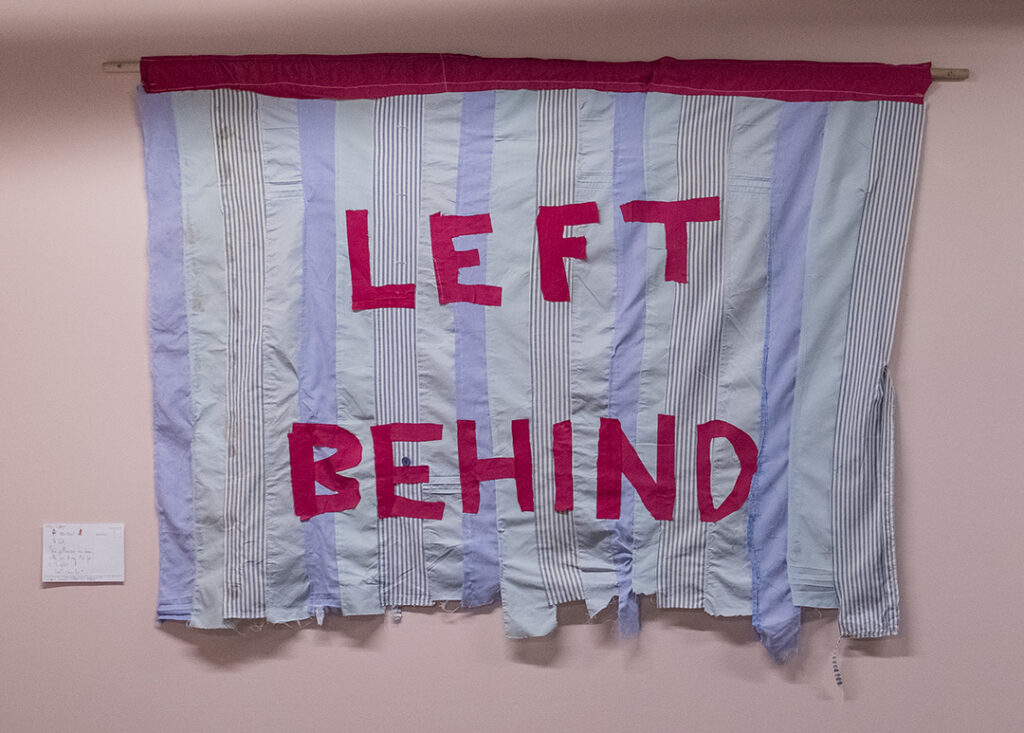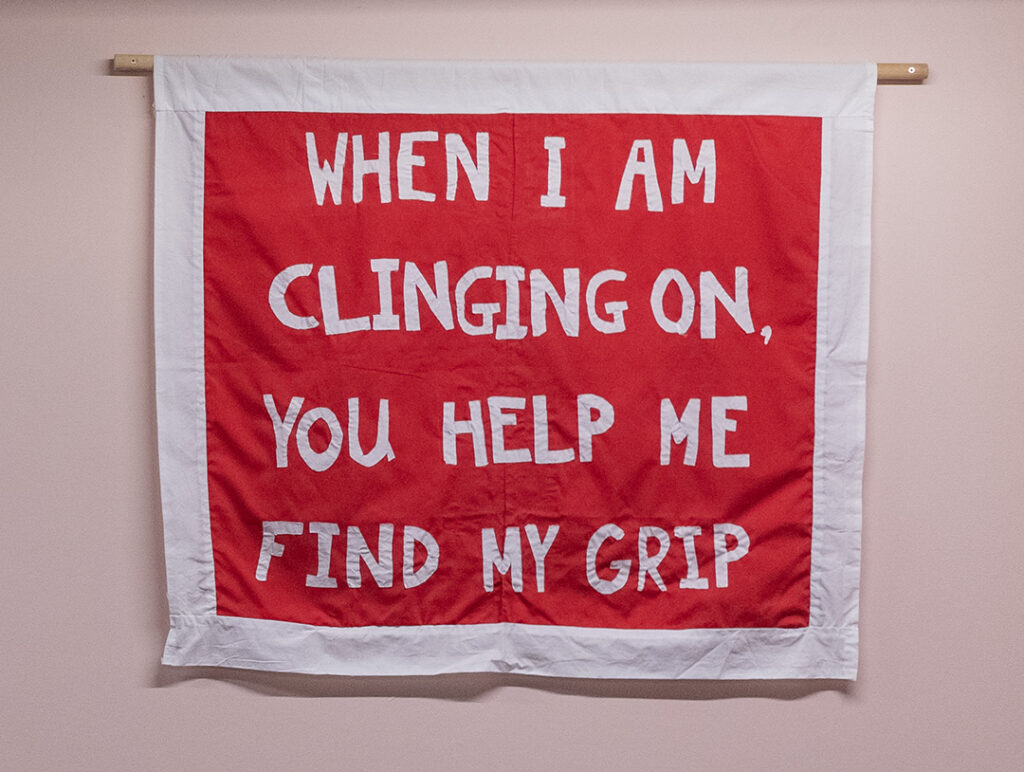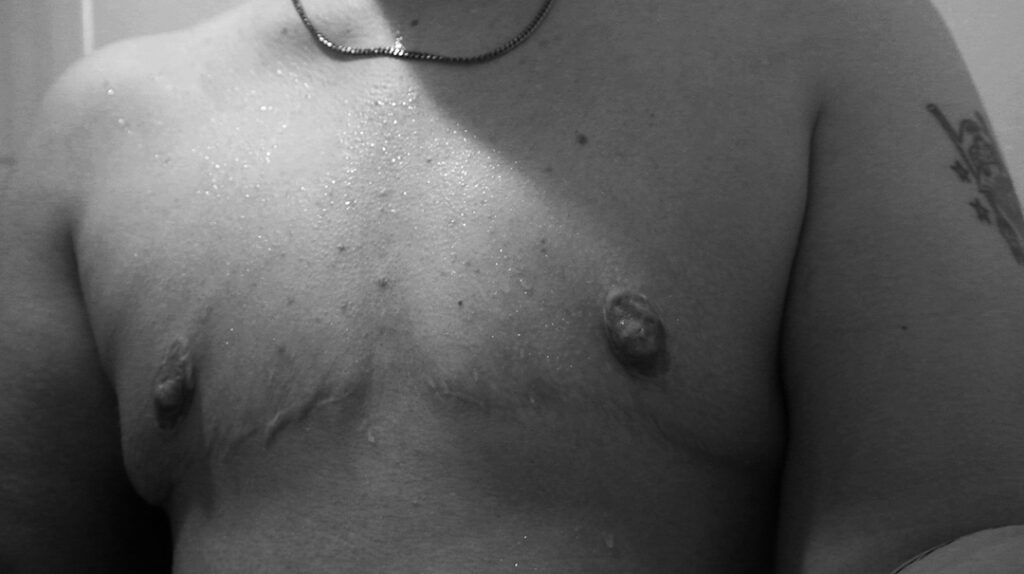Contact Details
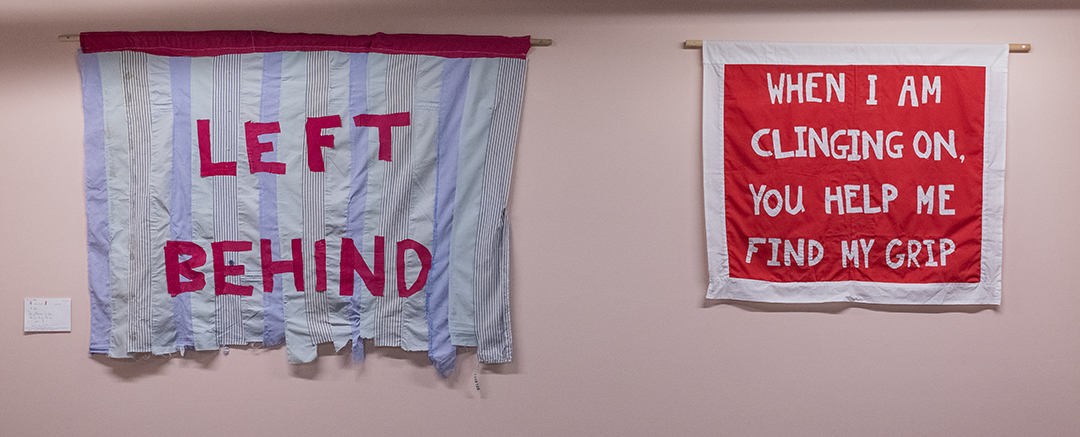
NOTE:
As a result of a part of Edi’s installation that says ‘FREE PALESTINE’ being removed by the gallery due to the gallery’s limitations around political neutrality, Edi has covered up their remaining work in Energy Console.
They have the following statement on display in the gallery:
“You will notice that my work is covered up. I have self-censored these pieces because of the gallery’s decision to remove an element of my work due to its ‘political’ nature.
From 13th April, the TOMA cohort installed this show at the Beecroft Art Gallery. At numerous points during this install, I was wearing a hoodie that I had stitched a liberatory phrase onto in solidarity with the people of Palestine. Our show opened on Saturday 27th April and this hoodie was on display draped over the armchair in this space as part of the furnishings that create this installation.
By Monday 29th April, I was informed via TOMA that the decision had been made by Beecroft Art Gallery to remove this hoodie due to its ‘political’ nature. I was told I could come and take it myself or let them remove it and store it. The gallery’s stance is that the space needs to be politically neutral as they are part of the council. The artist contract also stated that ‘The Beecroft has the right to remove any works from display, this decision will be made with all parties present, and any compromise will be sought prior to any final decision.’ On Wednesday 1st May, the first day the exhibition had been open since receiving this news, I arrived at the Beecroft Art Gallery to remove the hoodie (finding it turned over in the meantime, phrase hidden from view).
Earlier this year, I had a piece of work on display in another council-funded local arts space that included the quote ‘NONE OF US ARE FREE UNTIL WE ALL ARE FREE’. I do not believe that being specific about groups of people who are not free and that we should be standing in solidarity with is controversial enough to limit my freedom of expression as an artist.
Showing solidarity with people in the face of genocide is not more or less political than the rest of the works I have on display, which explore subjects such as the bureaucratic violence of the state. Politics is weaved throughout my work, and as a disabled, trans and queer artist my work is inherently political. The struggles we face are interconnected and I do not feel comfortable having some of my political work on display and not others, especially in the absence of any policy that dictates the nature of the gallery’s political limitations.
I have therefore decided to self-censor and cover my work that remains in this show. You are still welcome to sit in this space, rest and reflect, but know that you are not in this space as it was originally intended. Works from the installation, including the accompanying zine, are on sale on my website with all profits donated to groups supporting those in Gaza.
You can find out more on my website: www.edi.xyz/palestine”
“i have decided to not become super legible for the sake of it, because i simply can’t. it is too messy for my head, it makes my brain fuzzy. i am complicated and not easy to package up, professionally or otherwise, and that is FINE”
Edi aims to create socially-engaged work that explores experiences of community and marginalisation, memory and imagination – in particular they focus a lot on care, queerness, gender and cripness. They think a lot about time, the internet, the ways we can show up for each other, and the role artists play in building a better world – and struggle with being succinct.
Edi’s installation showcases a range of work made throughout their time on TOMA within a space designed to be much like the space most of their art-world happens in – at home, on the sofa or in bed.
Edi McGurk is an interdisciplinary artist based in Essex and, from time-to-time, East London. Due to chronic illness, most of the time they’re based in bed. After starting out as a photographer, they have spent their time on TOMA developing their practice to centre access and spaciousness. This has meant working at a slower, more long-term pace focusing on process and engagement – incorporating textiles, print, writing, moving image and sound, and performance.

